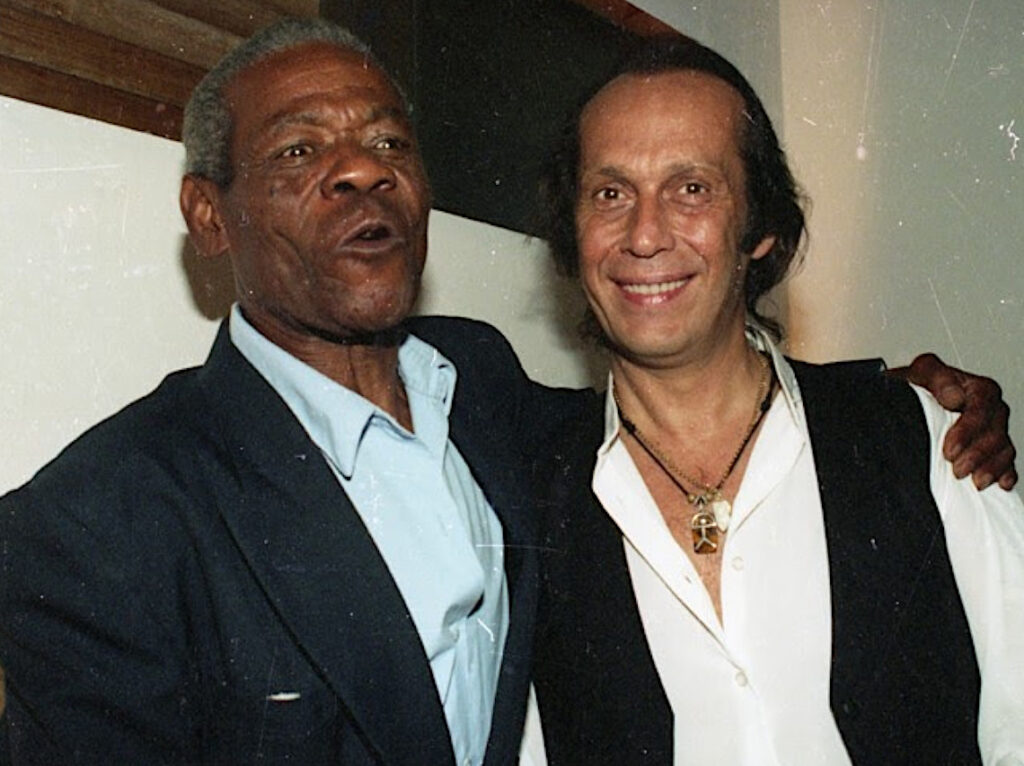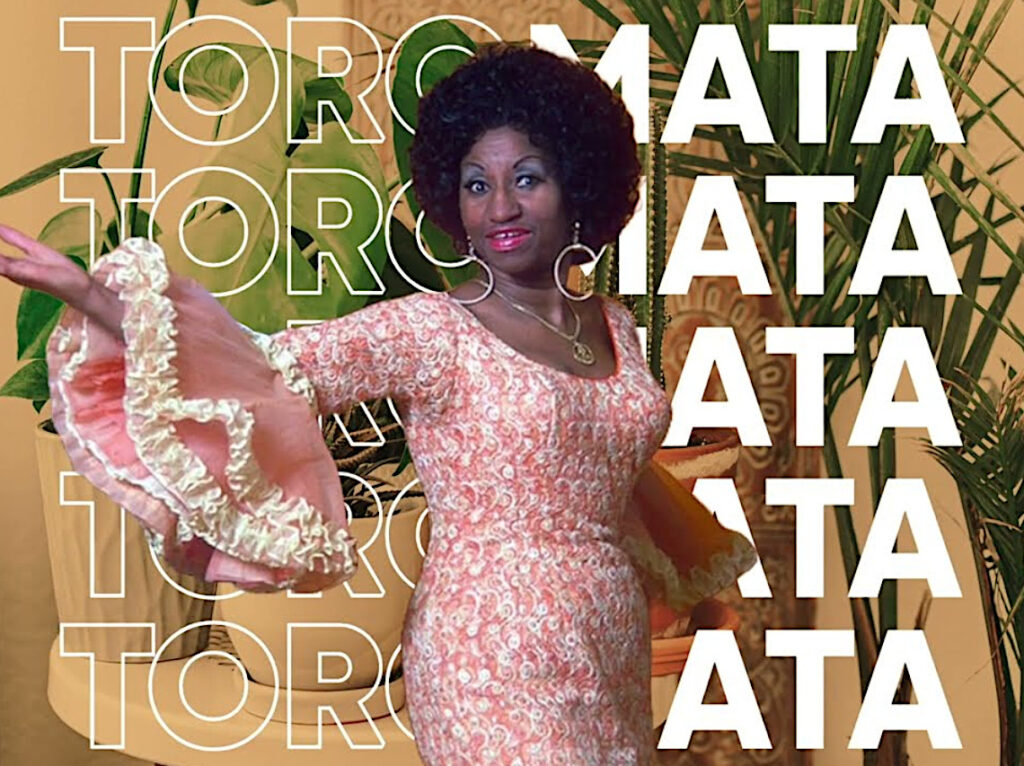Peruvian music has an unmatched richness, and one of the most important jewels of the Afro-Peruvian repertoire is the song «Toro Mata». This piece, deeply rooted in the history and culture of the Afro-descendant community of Peru, has transcended borders and has been performed by great figures of Latin music, such as the iconic Celia Cruz. This article seeks to highlight the history and importance of «Toro Mata», as well as recognize the legacy of the famous musician and composer Caitro Soto, who was instrumental in its dissemination.
Caitro Soto: The Guardian of Afro-Peruvian Folklore
Pedro Carlos Soto de la Colina, better known as Caitro Soto, was a prominent Afro-Peruvian musician, composer and percussionist born in Cañete in 1934, one of the most important regions in the Afro-descendant tradition of Peru. From a young age, Caitro dedicated himself to the preservation and dissemination of Afro-Peruvian music, a style that mixes African rhythms with the Creole tradition of Peru. In addition to being a talented cajon player, Caitro was an ambassador of Afro-Peruvian folklore, bringing his music to international stages and leaving an indelible legacy in Peruvian culture.
Among his most notable contributions is the popularization of “Toro Mata,” a song that has its roots in Afro-Peruvian tradition, but which achieved notoriety thanks to its interpretation and recording by Soto. His participation in Conjunto Musical Perú Negro, a group dedicated to the preservation of Afro-Peruvian music and dance, was crucial in bringing “Toro Mata” to national and international recognition. Soto also collaborated with renowned artists such as Chabuca Granda, and was part of the movement that sought to revitalize and rescue the Afro-Peruvian legacy in the Peruvian music scene.
Caitro Soto also contributed greatly to the introduction of the Peruvian cajón to Flamenco and to the world, as he was the one who gave 2 cajóns to Paco de Lucia when he visited Peru, who was so impressed by the Peruvian instrument that he decided to take them with him to Spain.
The Meaning of «Toro Mata»
«Toro Mata» is a song that has its roots in the festejo, an Afro-Peruvian musical genre characterized by its cheerful and energetic rhythm. Although there are different versions of its origin and meaning, many agree that the song evokes a symbolic story about the triumph over oppression and resistance of the Afro-descendant community in Peru.

The lyrics of «Toro Mata» speak of the death of a bull, which in this case is interpreted as a metaphor for the power or authority that oppressed the people. The bull is a representative figure of struggle, effort and, finally, victory. Some scholars of Afro-Peruvian music also see “Toro Mata” as a celebration of freedom, a festive and liberating cry in honor of Afro-Peruvian culture and identity.
In its traditional interpretations, “Toro Mata” is a song accompanied by cajóns, drums and other percussion instruments, fundamental elements in Afro-Peruvian music. The rhythmic rhythm and evocative lyrics allow the song to have a character that is both joyful and profound.
“Toro Mata” in Peru and Latin America
“Toro Mata” is more than a song; it is a symbol of Afro-Peruvian resistance and pride. In Peru, the song has been performed by generations of musicians, and has been transmitted by word of mouth as part of the country’s cultural heritage. Its popularity helped give visibility to Afro-Peruvian music and position this style in the musical panorama of Peru and the world.
In the Latin American context, “Toro Mata” has resonated deeply thanks to its themes and contagious rhythm, which connect with other genres of the region such as salsa and tropical music. Being a song that speaks about the struggle and celebration of freedom, “Toro Mata” has been reinterpreted in various versions, crossing the borders of Peru and being recognized as a classic of Latin American folklore.
The Salsa Version by Celia Cruz
One of the most important moments in the history of “Toro Mata” was when the song was covered by the FANIA record label and featuring the voice of the legendary Cuban singer Celia Cruz. In the late 70s, Cruz, known as the “Queen of Salsa,” included her own version of “Toro Mata” in her repertoire, adapting the song to the salsa style, one of the most popular genres of Latin music.
Celia Cruz’s performance was not only a tribute to the musical richness of Peru, but also a way to bring Afro-Peruvian music to a global audience. With her powerful voice and unmatched energy, Celia transformed “Toro Mata” into a salsa hit, respecting its roots, but giving it a modern twist that made it even more accessible to international audiences.
Thanks to Cruz’s influence, “Toro Mata” reached a new dimension in the Latin music landscape, reaching audiences who might not have known the richness of Afro-Peruvian folklore otherwise. This salsa version not only consolidated the song’s fame, but also helped put Afro-Peruvian music on the map and highlight its value within the Latin American repertoire.

“Toro Mata”: A Living Legacy
Today, “Toro Mata” remains an icon of Peruvian music. It is a song that not only remembers the past, but also celebrates the present and future of Afro-Peruvian culture. Through its lyrics, rhythm, and story, the song continues to inspire new generations of musicians and listeners in Peru and beyond.
For Peruvians abroad, “Toro Mata” is a reminder of their roots and the cultural richness of their country. The song not only reflects the history and folklore of the Afro-descendant community in Peru, but also symbolizes the diversity and fusion that make Peru a unique country.
The legacy of Caitro Soto and all those who have contributed to the preservation and dissemination of “Toro Mata” lives on, both in traditional interpretations and in modern versions such as the latest version by the great Peruvian musician Tony Succar, winner of several Latin Grammy Awards. His latest Salsa version of “Toro Mata” is a celebration of music, resistance and Afro-Peruvian culture that impacts the hearts of those who listen to it.
In short, “Toro Mata” is not only a pride for Peru, but also a musical gem that has transcended borders and continues to touch the hearts of those who appreciate Latin music and Afro-Peruvian folklore.




